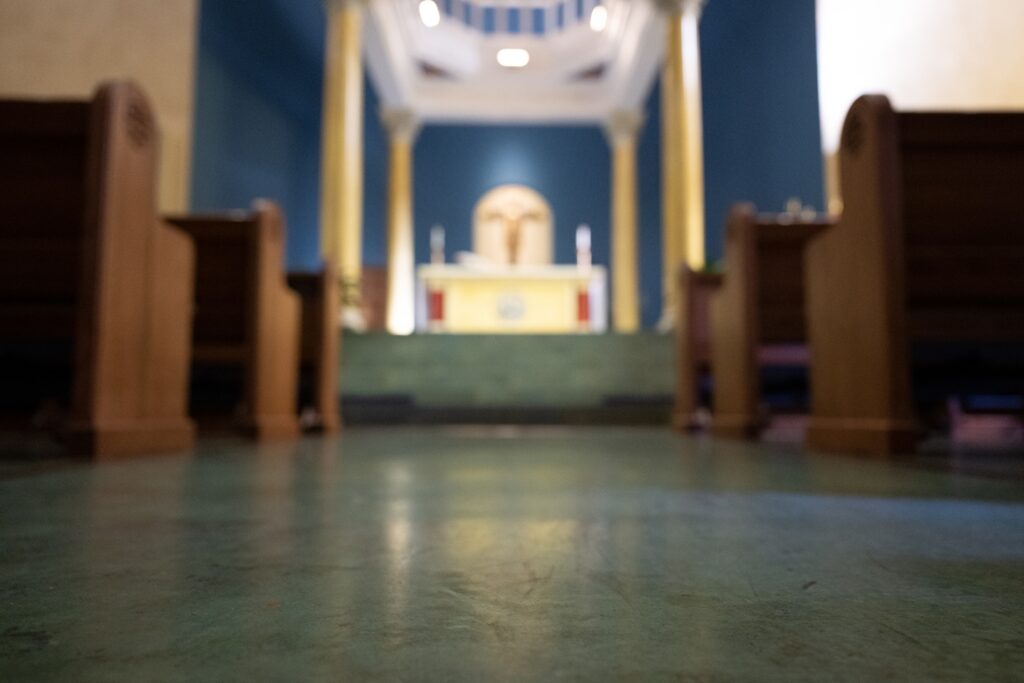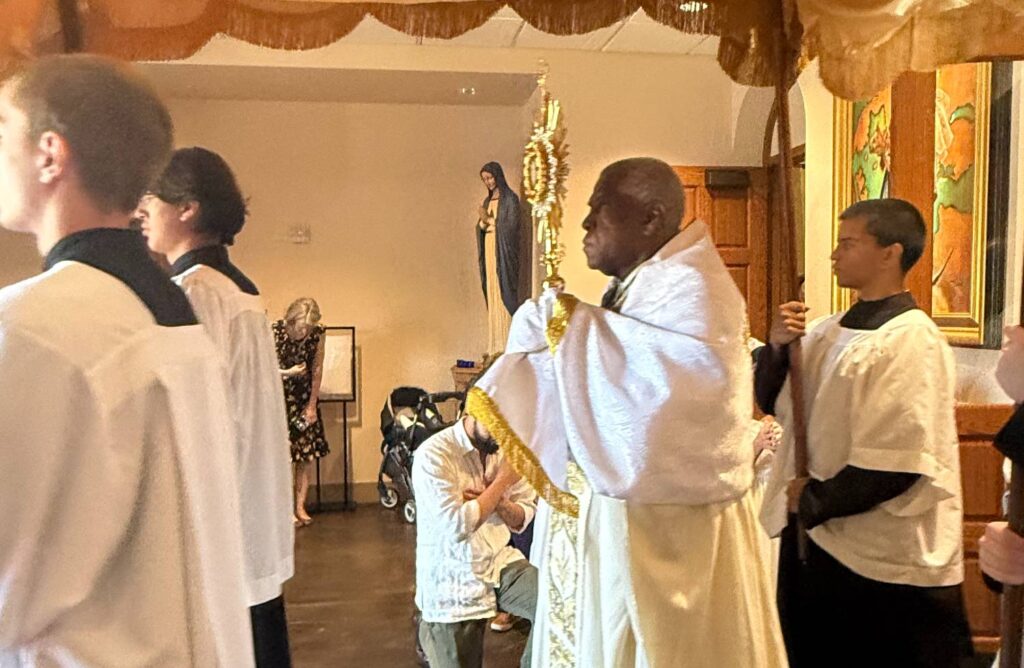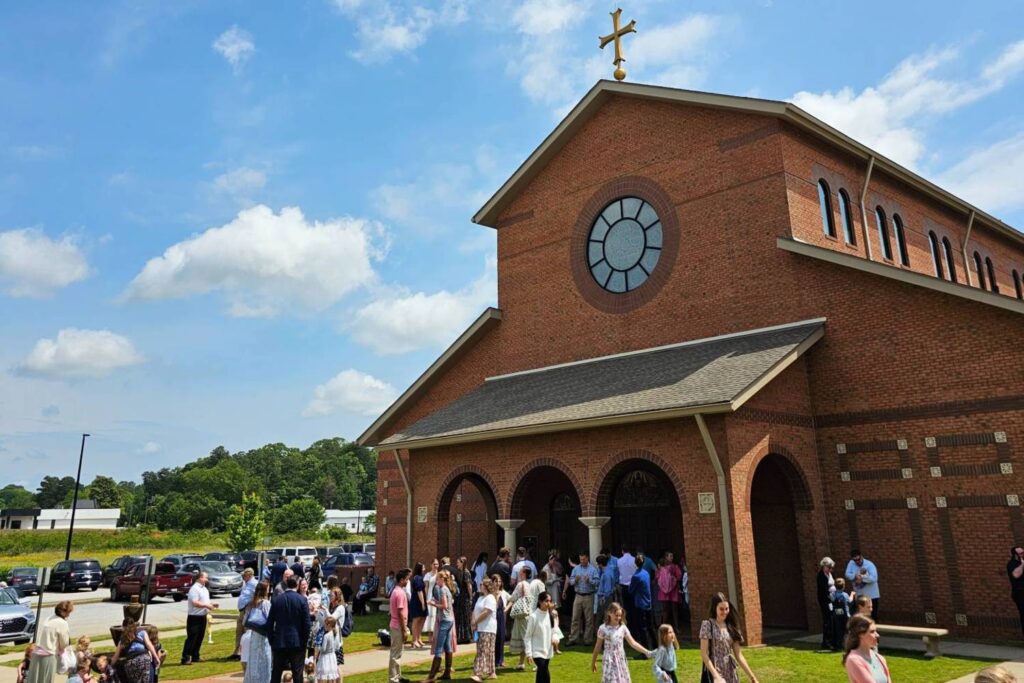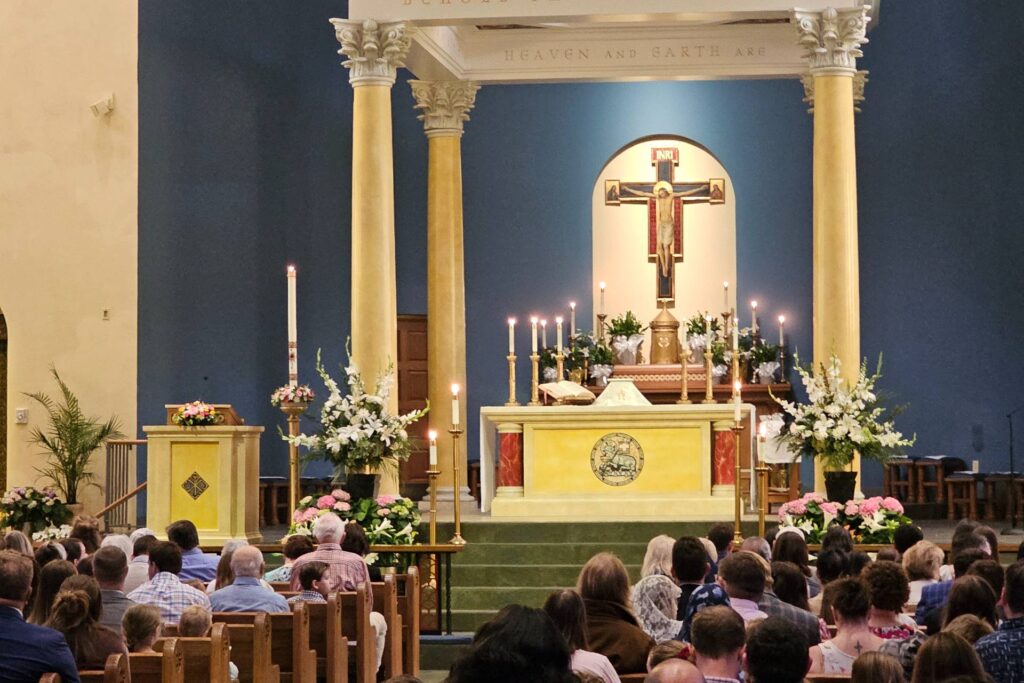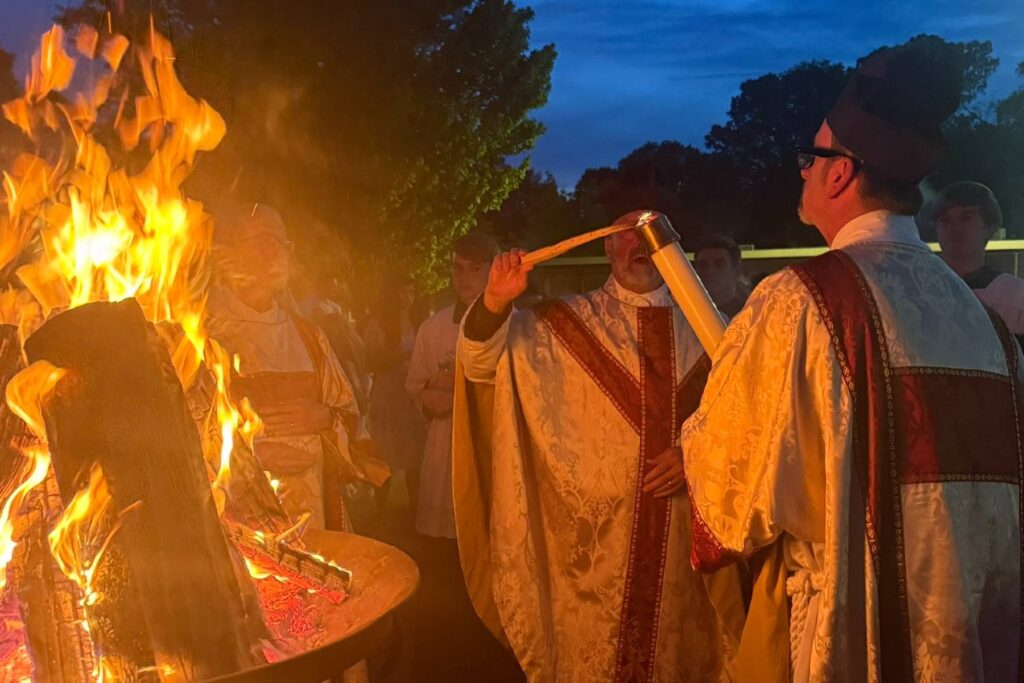Dear Brothers and Sisters,
The other day someone asked me, “What is your vision for OLR parish?”
I answered, “In the sixth century the great Roman Empire was disintegrating as a result of unlimited power, untold wealth and widespread moral degeneracy. The infrastructures were failing. Politicians were corrupt, the old religions were moribund and indifferent. The barbarians were encroaching and there was widespread fear, despair and collapse of civilization.”
St. Benedict of Nursia went out from Rome and began to establish small monastic communities in the hills of Rome. His twin sister Scholastica followed his lead and built up women’s communities. When we think of Benedictine monasteries we may imagine large medieval institutions with extensive buildings, a huge Abbey church and outlying farmlands and a sizeable enterprise. Benedict’s communities were not that. They were simple, small survivalist communities where men and women lived disciplined lives of prayer, work and study.
Eventually those core communities flourished. The monasteries became centers of health, education and welfare. They grew and prospered. The seeds Benedict planted flowered into the amazing civilization we call Christendom. Thus, St. Benedict is recognized as the patron of Europe because Western civilization as we know it is largely the product of his simple life of faith—doing what he could with what he had where he was.
My vision for the parish is that it is a Benedictine parish. While we are not monks and nuns in a formal way, we are a community bound together by lives of prayer and worship. The other two planks of Benedict’s revolutionary way of life are also part of our parish life: work and study. Over the years I’ve seen how hard our people at OLR work. I’ve seen how generous folks are with their time, talent and treasure. I also realize how important study is. This is why we’ve put such effort into building up our school.
Who knows what God has planned for OLR’s future? It is my prayer that, like St. Benedict’s little monasteries, this parish might be a seed planted by God which will be part of a flourishing of Christian culture in the years and centuries to come.
Your Pastor,
Fr. Longenecker
